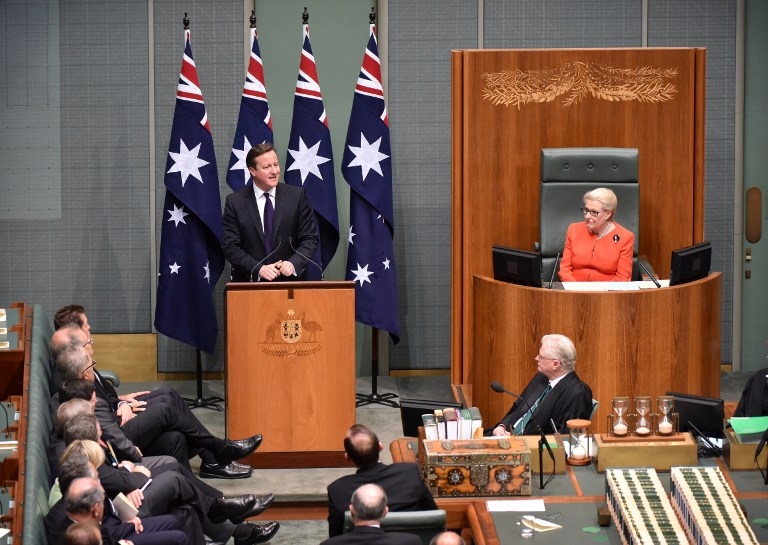Why the UK’s anti-terror bill is a confused piece of legislation

Last week the UK home secretary, Theresa May, announced the intensification of UK counter-terror policy on a broad front; the measures notably include the application of greater pressure on internet companies to cooperate with the authorities.
May’s announcement of a new counter-terrorism and security bill is just the latest UK government publicity stunt on counter-terrorism. For 15 years, starting with the Terrorism Act 2000, successive UK governments have either overstated or misrepresented the terrorist threat to achieve ill-defined political and socio-cultural goals.
This dramatic, convoluted and heavy-handed approach is not in keeping with the UK’s stated aim to maintain an influential posture on the world stage. The existing counter-terror policy is more representative of an immature and insecure country rather than a reflection of the UK’s centuries-old experience in global leadership.
It also highlights growing fragility on the home front, as more and more British Muslims fall into the government’s ill-conceived and ill-defined “radical” and “extremist” category.
State of terror
To be fair there is a genuine terrorist threat to the United Kingdom. Besides the awful terrorist attacks of July 2005, there have been numerous credible plots by al-Qaeda-inspired terrorists to attack soft targets on British soil. Luckily for UK citizens, these plots were discovered and thwarted by a well-funded and highly motivated counter-terror and security apparatus.
The UK government and its critics may disagree on the causes of the terrorist threat; with the former blaming ideology and the latter foreign policy, but the validity of the threat cannot be disputed. The real point of dispute is the response to this threat.
Every rational and responsible citizen and resident of the UK would want every proportional step to be taken to counter the threat from terrorists. The problem is the UK government’s approach is not proportional to the scale of the threat.
A brief look at the new counter-terrorism bill underscores the disproportional nature of the response. Besides pressuring internet and technology companies, the new bill compels schools and colleges to report on “radicalisation”, in addition to imposing exclusion orders, in effect barring UK citizens suspected of terrorist activity abroad from returning to the country.
Cynics may argue that the provision on internet service providers is an attempt to introduce the so-called “snoopers’ charter” (communications data bill) via the back door. Moreover, vague references to “radicalisation” place an intolerable burden on higher education institutions to act as the eyes and ears of the security state.
Whilst this new bill is a response to the growing panic centred on the large number of young British Muslims who travel to Syria to fight for insurgent and jihadi groups, there are deeper foundational and conceptual flaws with British counter-terrorism.
The cornerstone of contemporary British counter-terror policy centres on the so-called Prevent strategy - this locates the terrorism challenge in a broader context of “radicalisation” and “extremism”.
The central conceptual problem is that neither radicalisation nor extremism have been properly defined, thus creating a perennial challenge to the government’s parochial and self-serving definition.
A more immediate problem is that many of the young men who are either caught up in terror plots at home, or who travel to Syria to join jihadi groups, are not necessarily extremists or radicals. In most cases, the suspects don’t have a background in political or religious activism nor do they necessarily espouse extremist views.
By over-focusing on ideology, and the concomitant elastic phenomenon of “radicalisation”, the government is seeking to distract attention away from the UK’s disintegrating social cohesion and the increasing marginalisation of the Muslim community, in particular that of young British Muslim men.
It is indeed shocking that there are now reportedly more British Muslim men fighting for the jihadi army of the self-proclaimed Islamic Caliphate led by Abu Bakr al-Baghdadi than there are in the British army. This is more a symptom of failing British institutions than a consequence of radicalisation.
Unethical foreign policy
British foreign policy also contributes to the confusion and the ensuing fiasco. For example, on Syria, British foreign policy is inconsistent with domestic policy.
Whereas on the home front the British government is deploying a broad range of harsh measures against people who travel to Syria to fight for rebel groups, British policy on Syria has arguably created some of the conditions that have enabled those same rebel groups to flourish.
On the one hand the British government has expressed loud support for the Syrian rebellion, and on the other it seeks to punish those who join that rebellion. This is one circle that the government cannot square.
Another example of double standards centres on the UK’s approach to the Muslim Brotherhood. Whilst by any standard the Muslim Brotherhood is a moderate and peaceful political and religious movement, there is intense pressure from lobby groups in the West, the Middle East and North Africa to paint the group as a terrorist organisation.
Earlier this year the UK government succumbed to pressure by illiberal regimes in Saudi Arabia, Egypt and the UAE to conduct a review on the group’s activities in the UK.
The British establishment appears oblivious to the harmful message this unethical and irresolute posture sends to the rest of the world. It is a portrait of a weak and corruptible state that is unable or unwilling to defend its declared positions on democracy, diversity and the rule of law.
On terrorism, a superficially tough approach, with resulting negative impact on community cohesion, is not in the UK’s national interest. Instead of appearing dramatic and effusive, UK officials would do well by engaging in a more grown-up conversation with the constituency that is allegedly at risk of “extremism” and “radicalisation”.
Mahan Abedin is an analyst of Iranian politics. He is the director of the research group Dysart Consulting.
The views expressed in this article belong to the author and do not necessarily reflect the editorial policy of Middle East Eye.
Photo: Prime Minister David Cameron announced the new policy in a speech delivered to the Australian Parliament on Friday (AFP)
Middle East Eye propose une couverture et une analyse indépendantes et incomparables du Moyen-Orient, de l’Afrique du Nord et d’autres régions du monde. Pour en savoir plus sur la reprise de ce contenu et les frais qui s’appliquent, veuillez remplir ce formulaire [en anglais]. Pour en savoir plus sur MEE, cliquez ici [en anglais].





